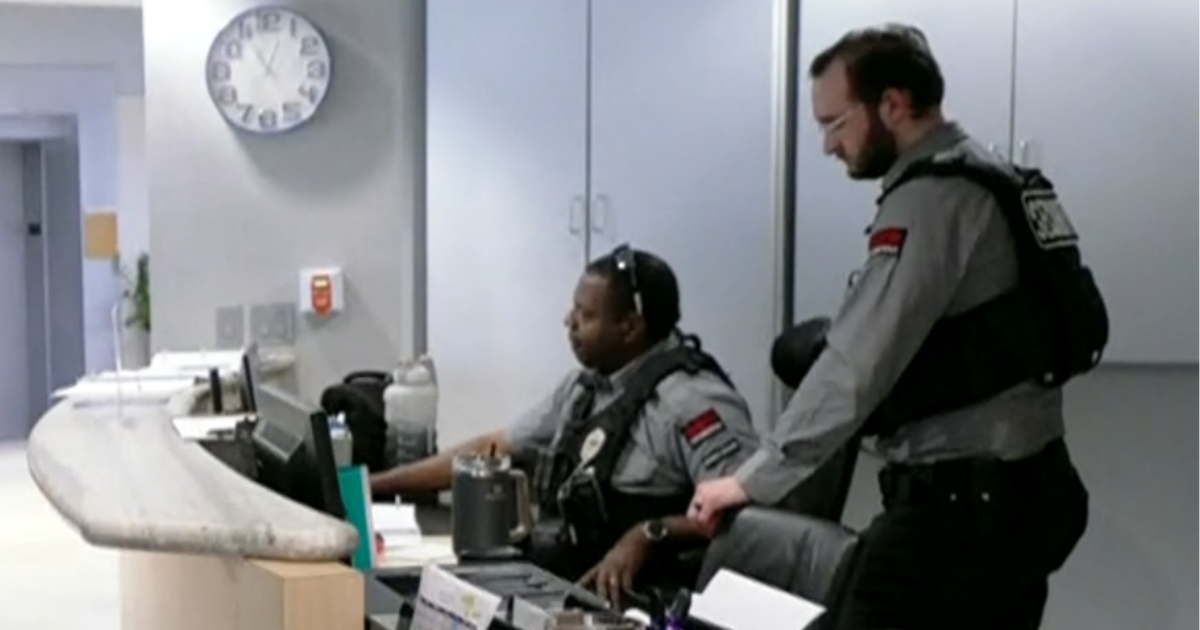New book 'Chicago Mosaic' uses objects to tell stories of immigrants
Read this article in Spanish/ Para leer en español.
CHICAGO (CBS) -- Chicago's grown to be known as the most diverse major American city thanks to its vibrant immigrant communities.
A new book illustrates over 40 Chicagoans' immigration stories through their beloved objects.
As CBS 2's Jamaica Ponder reported, "Chicago Mosaic" is a collection of immigrant stories of objects kept, lost, or left behind. The book serves as a way to both document the immigrant experience and tell their stories by making it accessible for others to learn from. The books are also being given away free of charge.
Dresses, dogtags, textiles, and and tupperware…
"It's a part of who I am as well."
"I was just completely delighted with the variety and really just how mundane a lot of the important objects are to people," said Chris Solís Green, co-editor and founder of Big Shoulders Books,
Seemingly simple, everyday objects that have one thing in common.
"They really have a lot of weight in there, in terms of their family's memories," Green said.
Green, who is a professor of English at DePaul University, has spent the last four years compiling and co-editing the book, "Chicago Mosaic: Immigrant Stories of Objects Kept, Lost, or Left Behind."
"We felt like having an object at the center of each story would help focus people's stories," Green said.
Like that of his colleague, Dr. Mónica Haydeé Ramos whose story starts in Jalisco, Mexico with her grandmother's rebozos, or shawls.
"This is part of my migration story because it represents strength and it gives comfort," she said. "It's a reminder that as long as this piece of cloth has lived and continues to live, there is hope."
The book documents over forty stories of hope, though many stem from a place of loss. Whether that be the objects left behind, or the people they represent back home.
"Here's this dog tag my grandfather gave me, and through that, I can just explore what this dog tag meant to him, why it was left behind," said Juan Ugarte, contributing writer.
For Ugarte, through storytelling, the pain of loss becomes secondary…
"It's the memories that come forward, you know, and that's what I really like about this book," he said.
In Chicago Mosaic, as opposed to hearing about immigrants…
"Hearing from immigrants is the news that the book brings just to humanize the immigrant experience," Green said.
And use those experiences to teach the city's students, by giving all the books away for free.
"One of our goals is to have these taught in as many Chicago high schools as possible, but they're free to anyone," Green said.
"My grandmother didn't have access to letters. She didn't have access to education, and to bring something like this to schools, and to share her story through these letters, it's really significant," Ramos said.
"I don't think my grandfather ever expected for his name to ever be said outside of Cuba. and that really means a lot to me that is a reality," Ugarte said.
The book's publisher, Big Shoulders, was co-founded by Professor Green Miles Harvey and Michele Morano, about eleven years ago. In that time, they've given out over a hundred thousand books. DePaul professor Amy Tyson co-edited "Chicago Mosaic" with professor Green.
To get one, you can send in a request via their website and they'll ship the books wherever you want whether it's your home or classroom. Readers can also find an electronic version of Chicago Mosaic on the site as well.
for more features.



